All photos: Oscar Hall
Yesterday saw the public drop of the fourth part of Faction's movie tetralogy, Abstract. The opening street segment, featuring Koga Hoshino, Alex Hall, Mac Forehand & Antti Ollila is certainly our highlight of the new project. Mac was a relative newbie to the streets but it certainly doesn't show. Turns out that comp skiers CAN do it on a rainy night in Stoke after all (sorry that one is for our UK readers). Antti oozes style and the switch cork 5 blunt hand drag, where he's grabbing blunt before the hand even hits is certainly a highlight, while Koga is, to put it bluntly, a psycho. But perhaps it's the technical prowess of Alex and Mac that stands out most here. We caught up with the boys to discuss their first trip to Nippon, the land of the rising sun, and see what goes into making a segment this heavy in just a few weeks.
_
For both of you, this was your first time going to Japan. What do you remember about arriving in the country?
Mac Forehand: We flew in together. It was just us two and we got there and had to figure out the whole train situation. All of the directions are in Japanese. There's no English anywhere. We were asking a lot of like the train conductors and local workers. They kind of spoke English, but not well. I remember so vividly getting there and looking at this map. The map was so confusing. Like, little colored lines going everywhere and absolutely nothing in English. I was kind of nervous at first but it was pretty easy to get around in the end.
_
How was it having Koga [Hoshino] as your local guide, with the language barrier in effect?
Alex Hall: For the first half of the trip we had [photographer] Toshi [Pander] helping us to communicate with Koga, which was super nice. Toshi speaks fluent Japanese and English. Toshi ended up leaving about halfway through the trip, so then we were on our own communicating with Koga. But it was so nice even with the language barrier. Skiing is skiing, you know? You don't really have to talk about it. Like if we were looking at picture of a spot on his phone, some things are just mutually understood. We all understood what we were trying to get done together.
Mac Forehand: Koga doesn’t understand much English, but it was so nice to have him as a guide. Finding the spots that we hit would have been nearly impossible without him. He had so many little, secret zones everywhere. I have no idea how he found those features. He's a crazy skier, too. Like, really, really good skier. Super gnarly in the streets.
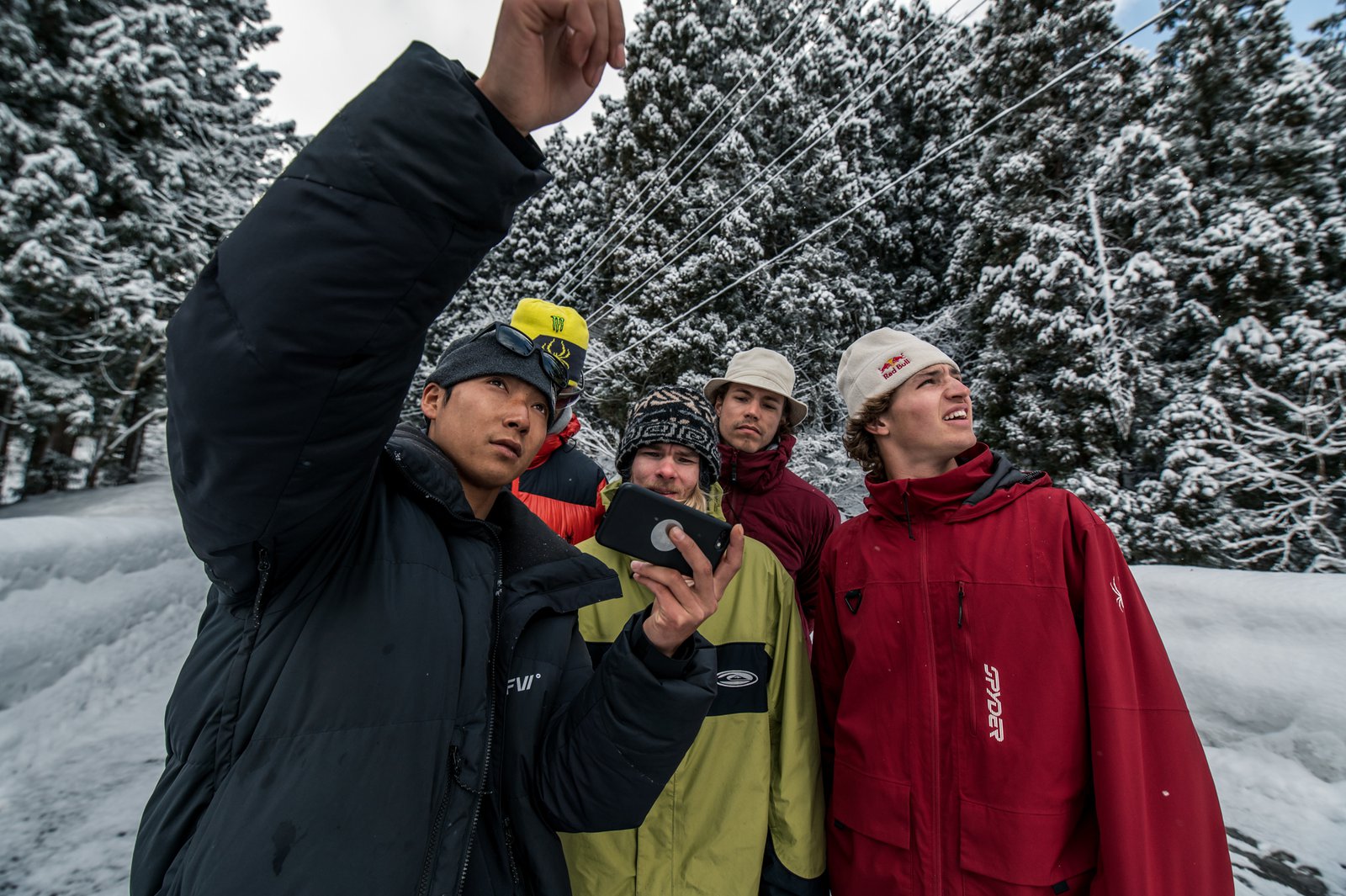
Local knowledge goes a long way when you're up against a deadline
Alex Hall: It was super nice having Koga show us all these spots. We wouldn't have found a lot of them normally because they were super low key. Like in an abandoned building or something. Not as obvious as other places where I've hit urban. We were in his hometown. He knew a ton of spots out there that he had already scoped out. He's got a really dope, tight-knit crew of homies. They came and helped us out at a couple of spots.
_
Alex, can you expand on what you touched on earlier, about how there is some mutual understanding between skiers, even with a language barrier?
Alex Hall: For sure. Whether it was Koga or myself that landed a trick, I remember sharing the joy of the moment with him. It doesn't matter what language you speak. We're just super hyped for each other. It was nice to have some of those moments because unfortunately he got hurt halfway through the trip.
I remember when we were building features we didn't really have to communicate. We were all on the same page about how we were going to build a jump or set up a spot. It was cool to see how similar our interests are and how we think about skiing. Even though we’d never met each other before that trip, we don't speak the same language, and we live in a completely different part of the world.
_
There was one shot in the movie where you're talking to a police officer. How did the local community feel about you guys doing what you were doing in the streets?
Mac Forehand: The bust factor was high in a lot of places. But it's funny, if you got busted the cops weren't really pissed. They were almost sorry that they had to kick us out.
Alex Hall: Yeah, it’s not like in the U.S. where the cops are going to be mad that you're doing it. They apologize for kicking you out because they feel like they're almost in the wrong, even though they're not. But they're kicking you out because it's not accepted to do stuff like that. That one cop I talked to, we didn't speak the same language, but we were trying to talk for like five minutes, and he was just apologizing to me the whole time.
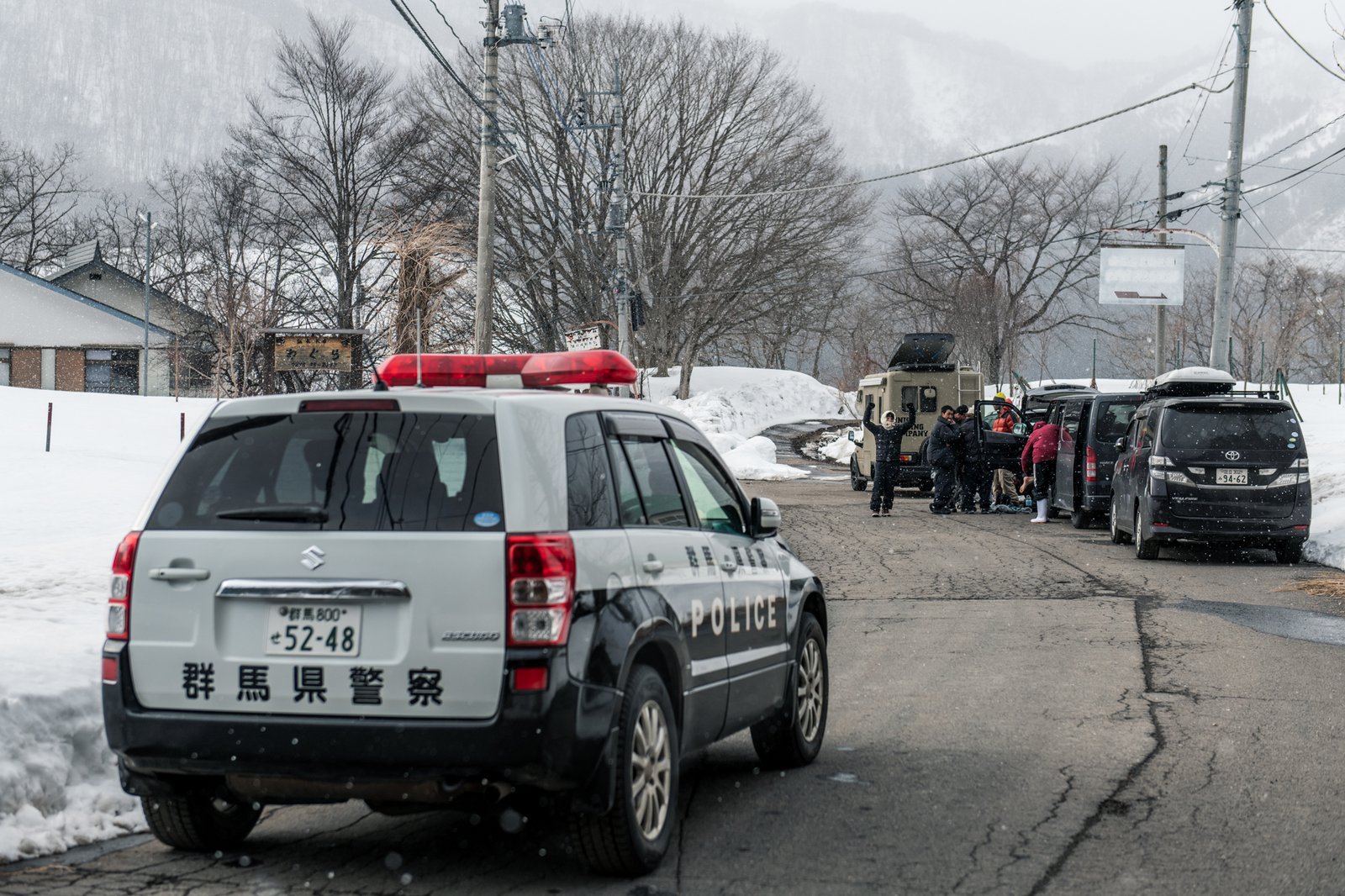
Lost in translation? Sometimes it's a bust no matter where you are
One thing that was also pretty different about hitting street in Japan compared to the U.S. is that Japan has so much snow you find yourself digging a lot of spots out, where in the U.S. you try to fill snow in. Like, you are scraping for snow.
Mac Forehand: Honestly before this trip I hadn't hit a lot of street before. The first day we got to this pretty sick feature — that up, gap, down rail from the movie — and we just started digging out. We had to dig out so much, it was crazy. There was another rail we were looking at that we never ended up hitting. I think it would have taken us five hours to dig out. It was a six-kink, I think. And every stair had probably four feet of snow on it.
Alex Hall: We actually started trying to avoid rails that were too snowed in. We'd go to lower elevation areas that had a little less snow so we wouldn't have to dig out, like, feet and feet and feet of snow.
_
Do you guys have a favorite feature or trick from the trip?
Mac Forehand: I think the first shot from the movie was my favorite. The front-three on the up, gap, down. I was probably the most scared for that, and it was the first day of the trip. That rail was sick. There was another rail we hit, a flat-to-close-out. I crashed and dislocated my shoulder. I took a few days off and it was nice to finally get a shot on that rail because it had been so f#cking terrifying the whole time.
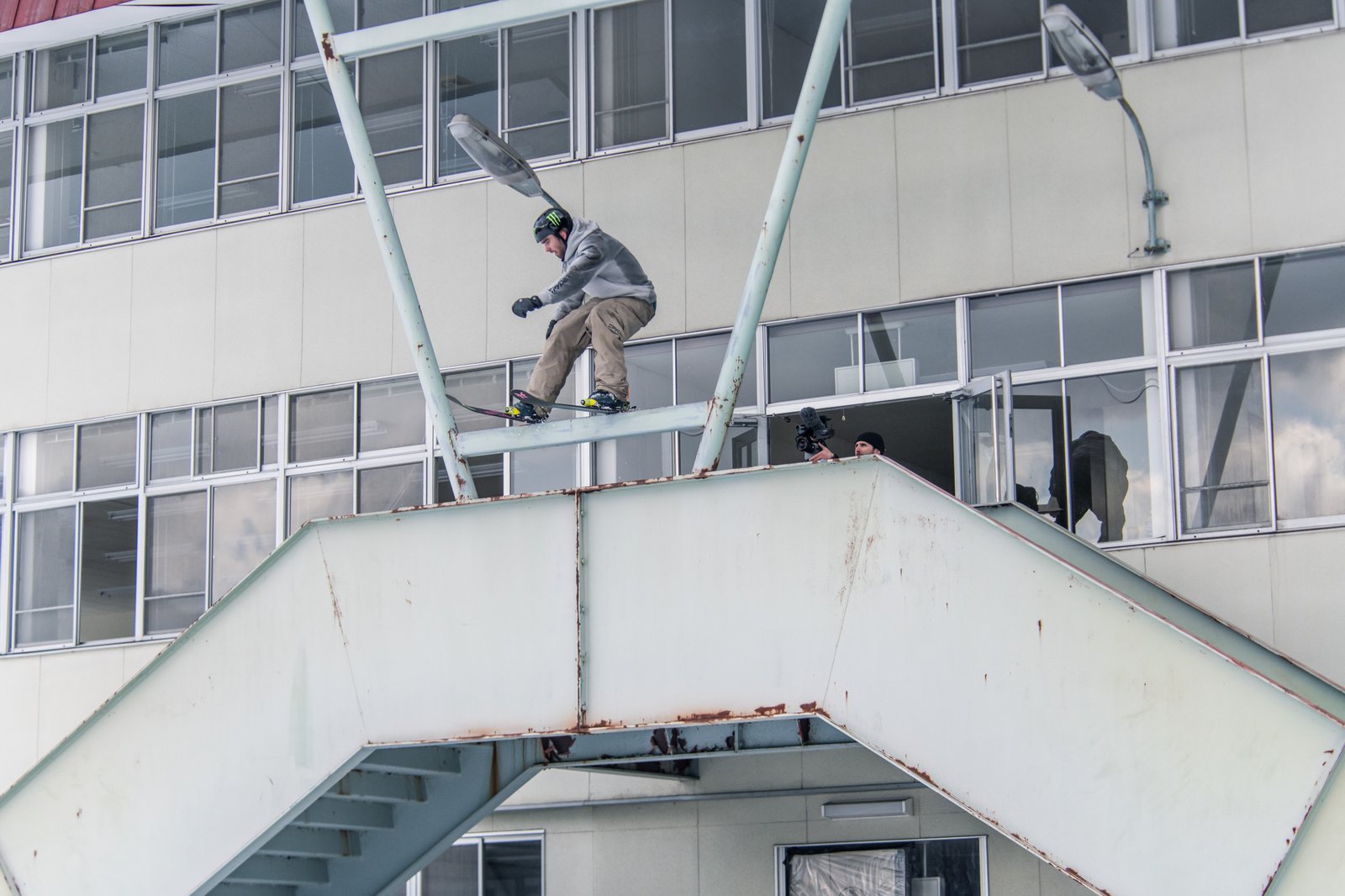
Alex Hall getting up in places most would rather not venture
Alex Hall: We all got shots on that up, gap, down rail. That thing was sick. And it's pretty rare to come by a rail like that where we could use natural speed. We just went up a little hill.
_
What was your daily schedule? Were you going super hard or did you have some time to also explore local culture?
Alex Hall: We went pretty hard. It was a lot of skiing. But we had a day in Tokyo at the end of the trip, which was really fun to check out. That city is crazy. It's so different from any other city I've ever been to. Just the cultural aspect of it. Like there's like a crazy old temple one second. Then you walk a few streets over and there’s like a huge arcade gaming center. It's crazy. It's a really interesting mix between traditional culture and very poppy, new culture.
Mac Forehand: We would wake up in the morning to go to a gas station called the Family Mart. They're everywhere in Japan, like our 7-Eleven. You just pick out your food for the day. I think every day we tried to get something more random at the gas station, because there's crazy stuff. And then we’d go to the first spot. We tried to hit two spots a day mostly, and it would take all day. Then go to bed early and do the same thing the next day. We had a lot of good food. I think I had some of the best ramen of my life, in Tokyo.
Alex: We never had a bad meal. We were having a bunch of sushi. The sushi conveyor belts were hitting hard. Those were incredible.
_
You also got to rip some pow towards the end of the trip. Was it what you had dreamed of as far as Japow?
Mac Forehand: Yeah, it was sick. It wasn't the steepest terrain ever. But it's crazy because we didn't really hike that much. You pretty much just go up the chairlift, duck into the woods, go five minutes into the woods and it's all untouched. Like, nobody goes in the trees there. One day it probably snowed two or two-and-a-half feet overnight. And there was a ton of snow underneath that too. There were some pockets where you went so insanely deep under the snow.
Alex Hall: My personal favorite was the night skiing. The night pow. We went to this random little resort that had maybe two chairs. It was completely dead and we were just skiing hot laps at night. On the funnest little terrain. Where we were skiing, the way I understood it was that there were a lot of people coming from Tokyo on weekends to ski there. But during the week it's very quiet. It felt like we were the only international people skiing there on those pow days. Everyone else was local. That was super cool.
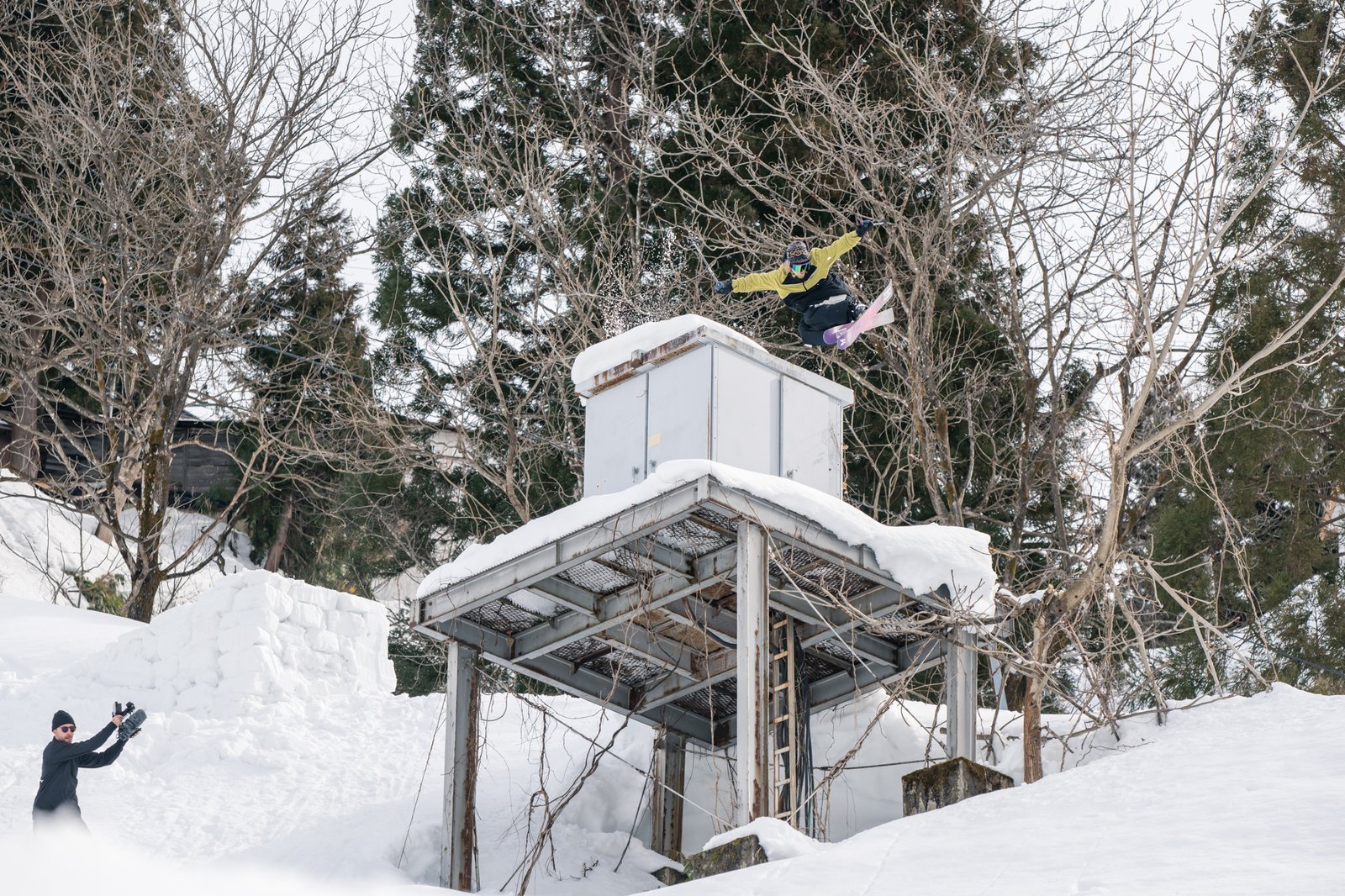
Japan, where pow and street skills become one
Mac Forehand: The tickets for the night sesh were like $16 for four hours. I've never seen it that cheap. It feels like when you're at those smaller resorts you go back in time. They're all these super old-school-feeling resorts. I've never really experienced that before. It was pretty cool to see that.
_
What is it that you love most about making ski films?
Mac Forehand: For me, it kind of takes you back to why you started doing the sport in the first place. I grew up as a mogul skier and the way I got into freeskiing was by watching Level 1 movies. I’d go ski in the park and I’d realize I could do some of those things. I like being able to film and put out content for other people to see, and hopefully, they draw inspiration from that like I did.
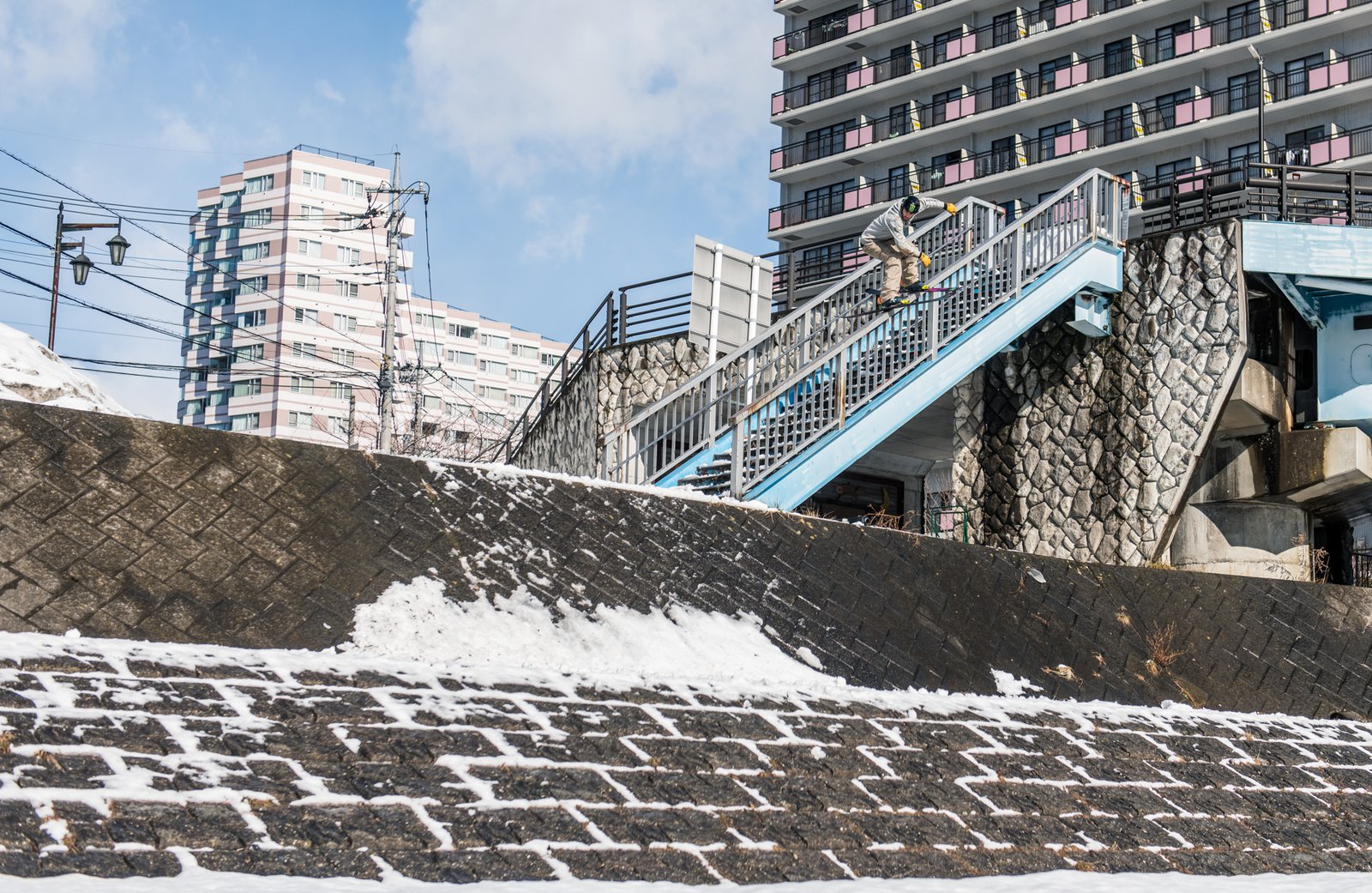
Epic backdrops and unique spots make for banger shots
Alex Hall: I think that when you film it's so much more of a team, collaborative effort than your experience on the competitive side, when, yeah, we’re traveling as a team but in the end you compete on your own. When you get to make these movies, it's all as a team. It's always a team effort to find a spot or build a feature. You could never get it done on your own. You need to do it with other people to get these shots. That's why I really love these film trips.
I love getting to travel to all these random places. When you're on the competition circuit, a lot of those events will be in similar places. But like Mac and I’s first time to Japan, on film trips we get to experience a lot of places that you wouldn't ordinarily get to with the comps.


Comments